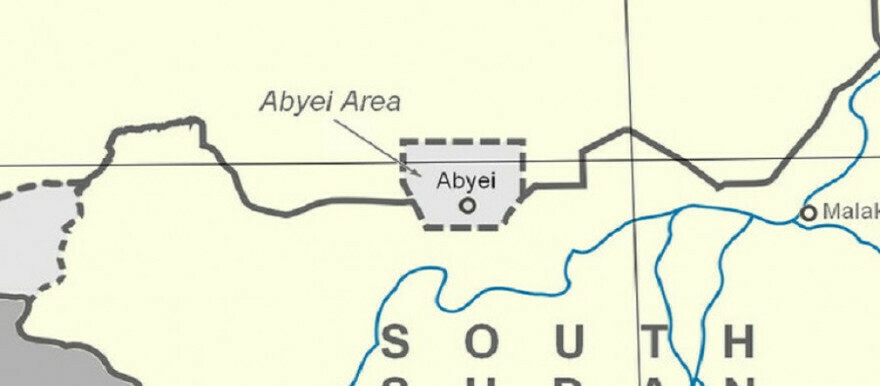In the heart of South Sudan lies Abyei, a region that has long been a flashpoint of conflict and suffering. The people of Abyei have endured unimaginable hardships, from violence and displacement to hunger and despair.
The recent surge in killings has only intensified the toll on the community, leading many to feel isolated. However, it is crucial to recognize that the struggles are not unique; they resonate throughout South Sudan and even across the border in Sudan.
The suffering of the people of Abyei has roots that date back to 1905 when its administration was moved to the of Kordofan Province. At that time, the people accepted the change out of necessity and adapted to it. However, the long history of betrayal and suffering that followed has been profound. Today, we cannot blame others for our plight; instead, we must come together as one people. The struggles faced by Abyei are mirrored in many regions, where families are torn apart by conflict, and communities are devastated by poverty. This shared experience should foster solidarity and unity rather than division.
In the Equatoria region, for example, the situation is similarly dire. Despite being rich in resources, our people in Equatoria face severe challenges. The government benefits from the resources while the local population suffers neglect and exploitation. Crime and violence are rampant, with many innocent lives lost. The plight of Equatoria further illustrates that the suffering in South Sudan is widespread.
Upper Nile is rich in oil and other resources, yet it also faces significant challenges. The government has largely neglected Upper Nile, leaving its people to suffer without the benefits of the wealth generated from their land. The violence and conflict in areas like Nasir, where the Ugandan army was brought in to quell dissent, are stark reminders of the struggles faced by the citizens. Innocent lives have been lost, and the underlying causes of these conflicts—rooted in resource control and political neglect—remain unaddressed. The suffering in Upper Nile parallels that of Abyei and Equatoria, demonstrating that the pain is widespread across South Sudan.
Even in Bahr el-Ghazal, where the president hails, people are grappling with similar issues. Despite their son being in power, many leaders have failed to address the needs of their constituents. The challenges faced by the people in these regions—hunger, violence, and instability—are not unique to Abyei; they are a national crisis that requires a unified response.
In these trying times, the people of Abyei must unite with their fellow South Sudanese. The path to freedom and stability does not lie in isolation or in waiting for external saviours; it lies in collective action and solidarity. The struggles of Abyei can only be addressed effectively when the people stand together across the nation.
The resources in Abyei, such as oil, should not create a false sense of superiority or entitlement. Other regions, like Equatoria and Upper Nile, also possess valuable resources yet continue to suffer. The focus should not be on the resources of a particular area but rather on the shared humanity and dignity of all South Sudanese. The fight for freedom and justice must be a collective endeavor, transcending regional differences.
It is time the people of Abyei took the ownership of their destiny. Relying on leaders from Abyei who are part of a corrupt government will not bring about change. The corrupt government is an enemy to all South Sudanese. If we continue to believe that the sons and daughters of Abyei in the government will free us or create positive change, we are mistaken. The responsibility lies with us, the youth, to unite with our fellow citizens and demand change for the entire nation.
Together, we can challenge the status quo, hold our leaders accountable, and advocate our rights. This requires a shift in mindset: recognizing that true freedom and peace will come from within, through unity and collective action.
The people of Abyei are not alone in their suffering. Their pain is part of a larger narrative that encompasses all of South Sudan. In order to achieve lasting peace and stability, it is vital to foster unity, recognizing that the struggles are interconnected. I urge my fellow citizens of Abyei to read this article with an open mind and to understand that the suffering is affecting all of our communities.
Let us stand together, fighting for a brighter future for Abyei, Equatoria, Upper Nile, Bahr el-Ghazal, and all of South Sudan The path to freedom is paved with solidarity, and together, we can overcome the challenges. Change is not something we can wait for; it must be actively pursued. Together, let us build the new South Sudan we have always dreamed of—a nation that serves and uplifts all its people.
The writer, Clara Auling, is a South Sudanese political activist. She can be reached via email: cauling16@gmail.com
The views expressed in ‘opinion’ articles published by Radio Tamazuj are solely those of the writer. The veracity of any claims made is the responsibility of the author, not Radio Tamazuj.




